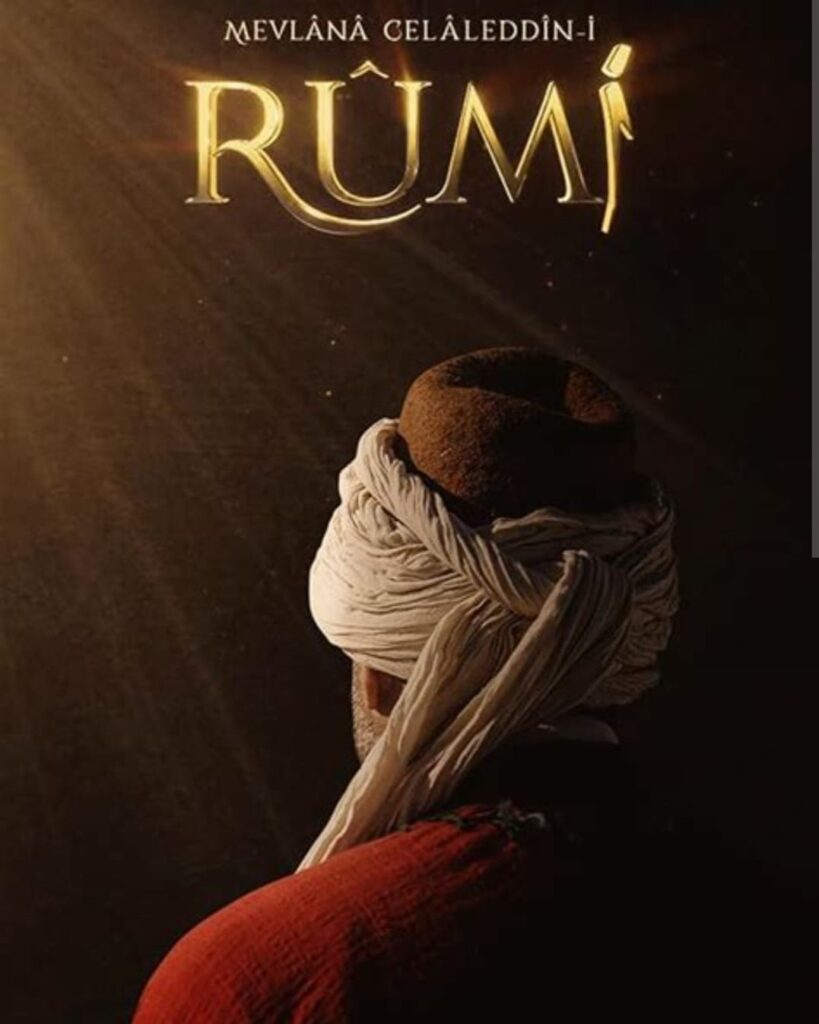



O’ curer of disease and ailments all
The savior of pride and self-esteem, false
For our souls, you’re Plato and Galen, smart.
O’ Lover, the love is the life of Koh-e-Toor
The mount got intoxicated, and Moses fell
Rise and Fall hides a mystery profound (18)
Shall destroy all balance, the order if told.
Whoever is parted from a friend is done
May keep a hundred others to kill solitude
When rose will die; ruined will be the garden
Where the bulbul will sit to tell her story.
The universe is beloved, and He, the lover
The beloved is present, and lover absent.
I mourn the fate who remain unloved
They are like birds with wings broken
Our hair and wings serve as bows to Him
He blows the arrow to reach beloved’s ring
Engulfed in His light, I am from all sides
An iron collar I wear, seldom the crown (19)
Love wants to manifest to the whole world
Your mirror isn’t reflective; you can’t do so (20)
Know why your mirror isn’t reflective
because its face is overall rusted
A mirror free from dust and rust
Is lit by God’s light, in and out
Go! Clean the rust from its face
Then embrace that light and grace
From your hearts, this advice do hear
And get out of your earthenware.

(1) Reed’s allegory has been used for human self.
(2) Reed was parted from reed-bed and humans from their abode in heaven.
(3) Rumi is referring to public ear and eye. The Sufi Kalam is not understood by everyone.
(4) While living on earth, we focus on the physical world around us and do not pay attention to spiritual being.
(5) Fire is a purifying agent, whereas the wind “hawa” drives worldly desires and pleasures.
(6) Click for details: annihilation.
(7) The whole world and its life system is moving with passion of love.
(8) The essence of human self is all in one; it plays many roles in life
(9) Majnun is a lover in Arabic folklore.
(10) Reed like humans have two mouths. From one we are addressing God, but we are doing so, because he breathed “Ruh” in us.
(11) God speaks to us through soul; as we neglect His commands, the voice becomes louder and louder.
(12) Few people listen to their inner self and live a balanced life; others live a life of sorrow and do not know why?
(13) A dervish does not care how his days are spent; He is happy if he is with the One, Allah the almighty. He is satisfied if his days are spent in the kind remembrance of God.
(14) Rumi is advising to be less talkative, especially in the company of sobers, because they are not intoxicated with Love. Rumi also counsels to speak sparingly, because everyone cannot absorb the knowledge, he is given. The inept must be dealt carefully.
(15) The material and worldly attractions of this world are often termed as golden cage in the Sufi literature.

(16) In Persian poetry, mother of pearl, “sadaf” (صدف) often symbolizes purity, beauty, and the search for truth. Seashells and mother-of-pearl are used metaphorically to represent the inner beauty and hidden treasures within the soul. For example, the mystic al-Hallaj used seashells as metaphors for the search for truth, describing them as the “kernel of the kernel” that can alleviate gloom and sorrow. This imagery aligns with the broader themes in Persian poetry, where natural elements are frequently used to convey deeper spiritual and philosophical meanings.
The contentment is also mentioned here. The word “qana’ut” (قناعة) translates to “contentment” or “satisfaction” in English. It refers to the state of being content with what one has and feeling grateful for it. This concept is often emphasized in Islamic teachings, where it signifies an attitude of gratitude and acceptance of God’s will.
(17) Love, “ishq” (عشق) is an Arabic term that translates to “love” or “passion” in English. It signifies an intense, often overwhelming, and passionate form of love. In Sufi literature, “ishq” is used to describe a selfless and burning love for Allah, representing the deep spiritual connection between the lover (the devotee) and the beloved (God). Jazba-e-ishq” (جذبۂ عشق) combines “jazba” (جذبہ), meaning “passion” or “emotion”, with “ishq” to convey the idea of “the passion of love “34. It emphasizes the fervent and enthusiastic nature of this love, often highlighting the emotional and spiritual intensity involved. (Mentioned in Ghazzali, Aaron Spevack, Fethullah Gülen (2012). Ghazali on the Principles of Islamic Spirituality: Selections from the Forty Foundations of Religion Annotated & Explained. SkyLight Paths Publishing.”
(18) The term “rise and fall” is about breathing as well as it is connected to music notes. It also signifies ups and downs one faces in life. Similar rise and fall are also expected in spiritual experience.
(19) Divine love is not an easy path to tread on. It does not harbinger glory always. It can be a cause of public defamation, understood as blasphemy, and result in death as well, as it happened with Mansur Hallaj.
(20) Mirror is the term used for Qalb, the spiritual heart. The rusted mirror means the rusty heart and a soul which is drowned in worldly and immoral desires. We need to braze our hearts, get rid of all rust so that divine presence may reflect in our moral uprightness.

A window to Mathnavi Maulvi Ma’nvi
Translation and Commentary Seema Arif
External Links for Rumi

( Copyright 2024 ) Dr. Seema Arif All rights reserved.
All material on this page is Seema Arif’s original writing. Using it in any form of publication and print media without prior permission will be considered a violation of rights. When quoting research papers, proper referencing should be used.





